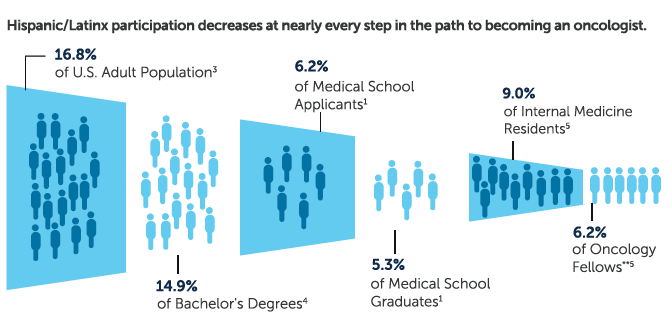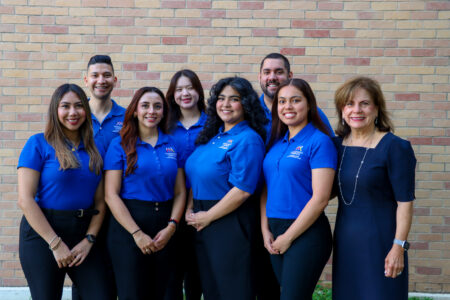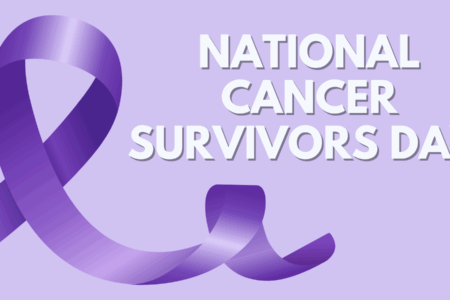
Share On Social!
Oncologists who identify as Latino remain highly underrepresented in the workforce, according to a new report from the American Society of Clinical Oncology (ASCO).
Although the percentage of Latino hematologists/oncologists has risen slightly over the past decade, from 4.1% in 2008 to 4.7% in 2018, Latino participation decreases at nearly every step in the path to becoming an oncologist, according to ASCO.
“As a result, [Latino] patients are deprived the benefits of a representative workforce, such as improved access, enhanced culturally and linguistically competent care, and minimization of health disparities,” wrote Dr. Gladys Rodriguez of the START Center for Cancer Care in San Antonio, and her colleagues, in a recent study in JCO Oncology Practice.
Why is this a problem?
Underrepresentation of Latino oncologists can worsen cancer treatment inequities in Latino patients, especially physician implicit bias.
Although physicians are trained not to make assumptions about patients based on stereotypes, implicit bias is common in healthcare and beyond conscious control.
Doctors of any racial/ethnic background are prone to implicit bias, but white physicians are more likely to make assumptions about minority patients.
Studies show that white physicians have implicit preferences for white patients, which can prevent minority patients, such as Latinos, from receiving equitable cancer treatment.
For example, a white oncologist may not speak to a Latino patient about a more expensive cancer treatment because they assume they can’t afford it.
Unfortunately, Latino cancer patients feel the effects of these situations every day, as cancer is the leading cause of death in the Latino population.
And since Latino cancer cases are expected to rise 142% in the next 10 years, it is critical that we continue to support diversity among healthcare professionals to help address physician implicit bias.
ASCO suggests collective action by institutions, medical societies, and healthcare individuals to improve training, hiring, and support efforts to achieve better representativeness of the oncology workforce.
“The US Latino population will continue to rise,” said Dr. Amelie G. Ramirez, director of Salud America! and the Institute for Health Promotion Research (IHPR) at UT Health San Antonio. “This demands diversity, inclusion, and equity in healthcare so that cancer patients, regardless of race, can have the best health outcomes possible.”

Dr. Ramirez is helping promote cancer treatment equity in a few ways.
Her program, Éxito! Latino Cancer Research Leadership Training, empowers Latinos to achieve doctoral degrees, conduct research to understand Latino cancer, and identify solutions and interventions to reduce cancer health disparities in this population.
Ramirez also created a tool to help healthcare workers assess their own implicit bias.
Download the free Salud America! Action Pack “Health Care Workers and Researchers: Find If You Have Implicit Bias and What to Do Next.”
This Action Pack will help you see if you have implicit bias, learn from others who have overcome their own implicit bias, and encourage colleagues to learn about implicit bias, too.
By The Numbers
25
years
of life expectancy between some U.S. cities.



